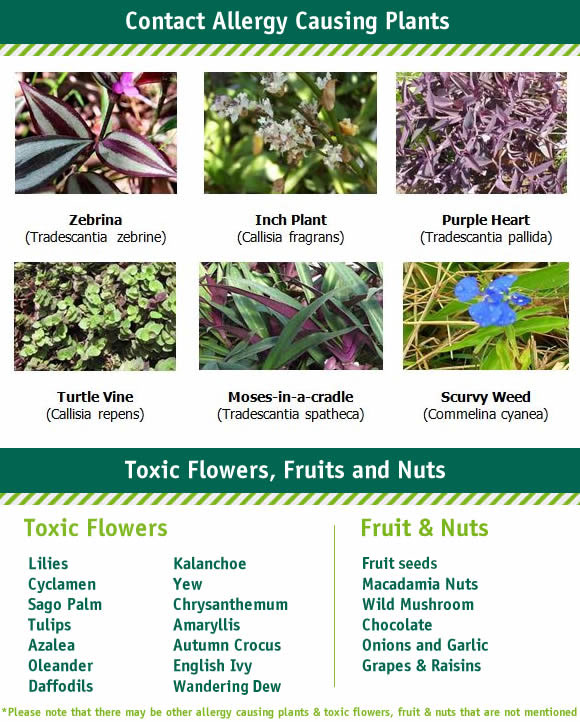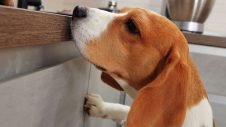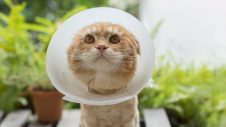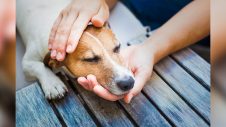While beautiful, many plants commonly found around our homes can pose a very real risk to our pets. Many plant species are potentially dangerous or actually toxic to dogs and cats. It is important to be aware of what plants are likely to be harmful, as well as the symptoms that may indicate your pet has been poisoned and the steps to take to keep your pets safe while still being able to indulge your green thumb at home.
Why some plants are harmful to dogs and cats
Dogs and cats are naturally curious and will often like to play with or chew things they find in their environment. For plants in particular this can put them at risk of a range of dangers. Some plants contain large seeds, which if ingested may cause an obstruction in your pets gastrointestinal tract leading to choking or vomiting. Small thawns or seeds can also become lodged in ears, eyes or paws, causing severe discomfort or injury. Many common plants found in Australian households and parklands are also toxic to our pets. If you suspect your pet has come into contact with or ingested a toxic plant or seed pod, especially if you do not know exactly what it was, you should contact your local Greencross Vets team immediately. If possible try to take a photo of the plant or seed pod in question. There are also apps you can download to your phone that will help identify plants if you don’t know what they are!
Common toxic plants for dogs and cats
There’s a long list of plants that are toxic to dogs and cats, but some are worth focusing on because of their popularity and the significant risk that they pose. Lilies are often given as gifts in beautiful flower arrangements, however ingestion of any part of these plants, even just small amounts of pollen or water from the vase, can result in fatal kidney failure in cats. While they are also toxic for dogs, their impact isn’t as severe and exposure may only result in gastrointestinal upset. Common varieties include Peace lilies, Tiger lilies, Japanese lilies, Stargazer lilies, Daylilies and Easter lilies, however all lilies should be considered toxic and avoided completely in households with cats in particular.
Other popular flowering plants harmful to dogs and cats include hydrangeas, tulips, ivy, daffodils, hyacinths, and irises. As the indoor plant trend has taken off, several potentially dangerous species are becoming more common in homes. These include the fiddle leaf fig, mother-in-law’s tongue, monstera, rubber plant, pothos, some ferns and bamboo varieties, and aloe vera. The sago palm is extremely toxic and should be removed from homes shared with pets.
If you’re unsure about any plant in your home and/or garden, check our A to Z of poisonous plants and don’t hesitate to ask your local Greencross Vets team.

Plants safe for dogs and cats
You’ll find that many Australian native plants are safe for dogs and cats to coexist with, including bottlebrush, melaleuca, grevillea and emu bush. These species will complement the ecosystem and attract native wildlife while posing no risk to your cat or dog.
You can also rest easy in the knowledge that popular plants like camellia, orchids, echeveria, snapdragons, African daisies, kentia and lipstick palms, prayer plants, calatheas and Boston ferns are safe, too. If you’re weighing up a new plant addition to your home or garden, it’s best to check our A to Z list of poisonous plants or talk to your local Greencross Vets team.
How to keep your pets from eating plants
Dogs and cats can be drawn to eat plants for a few reasons. They may simply enjoy the taste and texture of your plants, or they may be bored. If you notice your pet chewing on or eating any plants that can be moved out of their reach, be sure to do so until you’ve resolved why they’re behaving this way.
If your pet is chewing a plant in your garden you may have to isolate the plant and introduce a new distraction or increase daily exercise so they don’t feel compelled to do so. If these measures don’t help, discuss strategies and/or underlying causes for the behaviour with your local Greencross Vets team.
What to do if your pet eats a toxic plant
If your pet has encountered a toxic plant, they may experience vomiting, diarrhoea, drooling, seizures, lethargy, weakness, rapid breathing and abdominal pain. These symptoms & the severity of effect will vary based on the plant they’ve ingested. If you suspect they are being affected by a plant-based toxin, it’s essential to take them to the nearest Greencross Vet location for diagnosis. Some plants can lead to kidney and/or renal failure in cats and dogs, which is why you need to act quickly.
FAQs
What other household items can be poisonous to pets?
There are many items in and around the house that can impact your pet’s health, including chocolate, fertiliser and human medications. It’s well worth learning more about household dangers to ensure your home is as safe as possible.
Are some vegetables and herbs toxic to pets?
If you’re wondering if your dog can eat tomato plants, the answer is no. Pet owners should know that tomatoes (including the leaves and stems of the plant), grapes (including sultanas and raisins), onions, avocado, macadamia nuts, garlic and walnuts can be toxic for cats and dogs.

 Greencross Vets
Greencross Vets 









